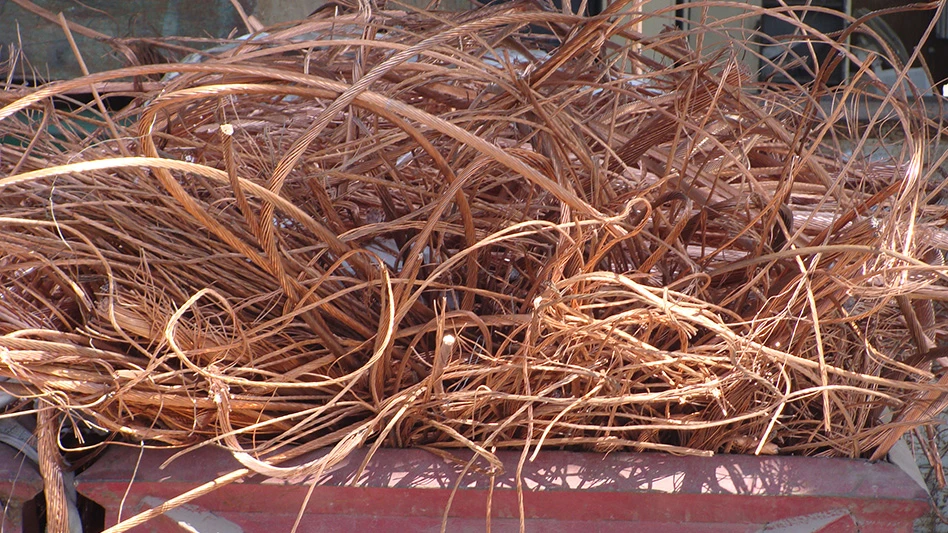
Recycling Today archives
Using the 2024 Asia-Pacific Conference in New Delhi as a peg, the Association of German Metal Traders and Recyclers (VDM) and the Federal Association of German Steel Recycling and Disposal Companies (BDSV) have released a statement focusing on the importance of relations between Germany, the European Union and India, especially in the area of the circular economy and raw materials trade.
The late-October conference will discuss a policy document called “Focus on India” that recently was adopted by Germany’s federal cabinet. That document provides for a deepening of the strategic partnership between Germany and India, according to Berlin-based VDM and the Düsseldorf, Germany-based BDSV.
“India is the largest buyer of recycled aluminum and the second largest buyer of recycled steel and copper from the EU," the groups say. "At the same time, the country is an important supplier of ferroalloys for the European steel industry.”
In 2023, the EU exported to India more than 2 million metric tons of ferrous scrap (of which Germany contributed more than 400,000 metric tons), nearly 320,000 metric tons of aluminum scrap (with Germany responsible for more than 52,000 metric tons) and 88,000 metric tons of recyclable red metal (of which Germany shipped more than 32,000 metric tons).
In the same year, more than 350,000 metric tons of ferroalloys were shipped in the other direction from India to the EU.
“This underlines the close economic ties between the two economies and the potential for further cooperation in the field of raw materials and circular economy,” the groups say.
“Every ton of recycled metal used in industry saves significant amounts of energy and conserves natural resources. A deepened partnership enables us to jointly develop higher environmental and labor standards, minimize trade barriers and promote the marketing of recycled metals on an international level.”
The trade groups list Malaysia and Thailand as other “major players” that “must continue to be included in global trade structures.”
VDM and the BDSV say the circular economy can only be successful if recycled metals can be traded worldwide without unfair restrictions.
"To this end, the German government must also advocate for international trade in the recycling industry as part of its raw materials diplomacy," the groups say. “The Asia-Pacific Conference therefore offers an important platform for strengthening commodity trade relations and setting the course for a more sustainable future. The increased cooperation between Germany, the EU and India is an important step toward further advancing the circular economy and at the same time securing the global supply of raw materials.”
Latest from Recycling Today
- BMW Group, Encory launch 'direct recycling’ of batteries
- Loom Carbon, RTI International partner to scale textile recycling technology
- Goodwill Industries of West Michigan, American Glass Mosaics partner to divert glass from landfill
- CARI forms federal advocacy partnership
- Monthly packaging papers shipments down in November
- STEEL Act aims to enhance trade enforcement to prevent dumping of steel in the US
- San Francisco schools introduce compostable lunch trays
- Aduro graduates from Shell GameChanger program





